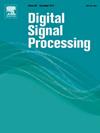MCNN-CMCA: A multiscale convolutional neural networks with cross-modal channel attention for physiological signal-based mental state recognition
IF 2.9
3区 工程技术
Q2 ENGINEERING, ELECTRICAL & ELECTRONIC
引用次数: 0
Abstract
Human mental state recognition (MSR) has significant implications for human-machine interactions. Although mental state recognition models based on single-modality signals, such as electroencephalogram (EEG) or peripheral physiological signals (PPS), have achieved encouraging progress, methods leveraging multimodal physiological signals still need to be explored. In this study, we present MCNN-CMCA, a generic model that employs multiscale convolutional neural networks (CNNs) with cross-modal channel attention to realize physiological signals-based MSR. Specifically, we first design an innovative cross-modal channel attention mechanism that adaptively adjusting the weights of each signal channel, effectively learning both intra-modality and inter-modality correlation and expanding the channel information to the depth dimension. Additionally, the study utilizes multiscale temporal CNNs for obtaining short-term and long-term time-frequency features across different modalities. Finally, the multimodal fusion module integrates the representations of all physiological signals and the classification layer implements sparse connections by setting the mask weights to 0. We evaluate the proposed method on the SEED-VIG, DEAP, and self-made datasets, achieving superior results compared to existing state-of-the-art methods. Furthermore, we conduct ablation studies to demonstrate the effectiveness of each component in the MCNN-CMCA and show the use of multimodal physiological signals outperforms single-modality signals.
MCNN-CMCA:基于生理信号的心理状态识别的跨模态通道关注多尺度卷积神经网络
人类精神状态识别(MSR)对人机交互具有重要影响。尽管基于脑电图(EEG)或外周生理信号(PPS)等单模态信号的心理状态识别模型已经取得了令人鼓舞的进展,但利用多模态生理信号的方法仍有待探索。在本研究中,我们提出了 MCNN-CMCA,这是一种采用跨模态通道关注的多尺度卷积神经网络(CNN)来实现基于生理信号的 MSR 的通用模型。具体来说,我们首先设计了一种创新的跨模态通道关注机制,它能自适应地调整每个信号通道的权重,有效地学习模态内和模态间的相关性,并将通道信息扩展到深度维度。此外,研究还利用多尺度时间 CNN 获取不同模态的短期和长期时间频率特性。最后,多模态融合模块整合了所有生理信号的表征,分类层通过将掩码权重设置为 0 来实现稀疏连接。我们在 SEED-VIG、DEAP 和自制数据集上评估了所提出的方法,结果优于现有的先进方法。此外,我们还进行了消融研究,以证明 MCNN-CMCA 中每个组件的有效性,并表明使用多模态生理信号的效果优于单模态信号。
本文章由计算机程序翻译,如有差异,请以英文原文为准。
求助全文
约1分钟内获得全文
求助全文
来源期刊

Digital Signal Processing
工程技术-工程:电子与电气
CiteScore
5.30
自引率
17.20%
发文量
435
审稿时长
66 days
期刊介绍:
Digital Signal Processing: A Review Journal is one of the oldest and most established journals in the field of signal processing yet it aims to be the most innovative. The Journal invites top quality research articles at the frontiers of research in all aspects of signal processing. Our objective is to provide a platform for the publication of ground-breaking research in signal processing with both academic and industrial appeal.
The journal has a special emphasis on statistical signal processing methodology such as Bayesian signal processing, and encourages articles on emerging applications of signal processing such as:
• big data• machine learning• internet of things• information security• systems biology and computational biology,• financial time series analysis,• autonomous vehicles,• quantum computing,• neuromorphic engineering,• human-computer interaction and intelligent user interfaces,• environmental signal processing,• geophysical signal processing including seismic signal processing,• chemioinformatics and bioinformatics,• audio, visual and performance arts,• disaster management and prevention,• renewable energy,
 求助内容:
求助内容: 应助结果提醒方式:
应助结果提醒方式:


